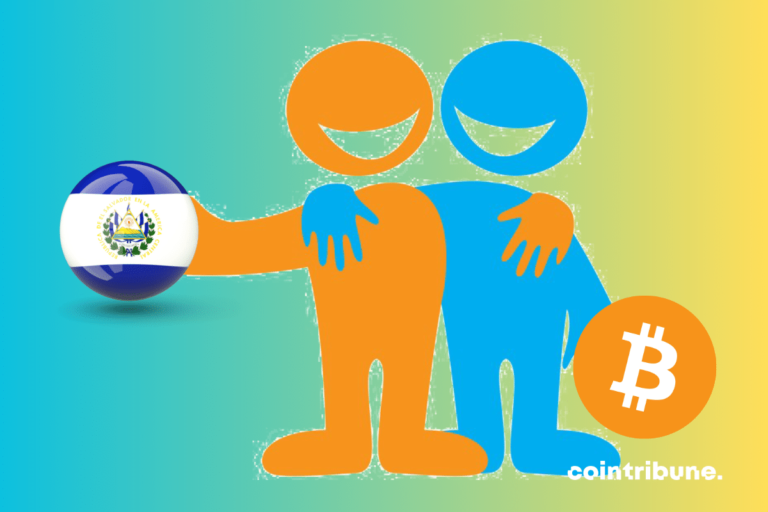
ConsenSys, the software solution provider for Ethereum, has updated its privacy policy. Everything goes down the drain…
Your IP address please
Consensys is headed by Canadian Joseph Lubin, the same man who founded Ethereum with Vitalik Buterin.
This New York-based company is a pillar of the Enterprise Ethereum Alliance, a global standardization body for Ethereum-related applications. The alliance now has over 500 members.
And not least… Accenture (which has a foothold in almost all CBDC projects), CME Group, Intel, JPMorgan, Softbank, HSBC, Coinbase, Microsoft and even Pfizer are there. There are beautiful people behind Vitalik…
This Wednesday, November 23, ConsenSys has quietly updated its privacy policy to collect more ethereum transaction data through Infura.
ConsenSys is the company behind Infura, a suite of tools for building apps. She is also the one who manages MetaMask, the most popular Ethereum wallet with 30 million monthly users.
Infura is MetaMask’s default RPC (Remote Procedure Call) provider. From now on, those who use it will have their IP addresses and wallet addresses collected with each transaction!
Unless you use your own Ethereum node (which is very expensive) or do without Infura and MetaMask.
Since there is no valid reason to spy on users like this, this malicious decision until proven otherwise. Especially when you know who is behind Consensys.
And we who thought that the purpose of “web3” applications was to stop collecting user data. What a humiliation…
Speaking of Ethereum node
The FTX scandal is causing a lot of ink to flow, but another is in the making: staking on Ethereum.
Since the famous “merge” of September 15, Ethereum has changed its consensus mechanism, moving from Proof-of-Work to Proof-of-Stake. Rather than providing energy, it is now “sufficient” to deposit 32 ETH to participate in the transaction validation process.
The problem being that it is not yet possible for “stakers” to withdraw their ETH. Even income from staking is blocked until further notice.
This situation makes people talk, and what could be more normal. The FTX debauchery, the collapse of Celsius or even the setbacks of Genesis, CoinHouse and others are not reassuring.
Some “stakers” would like to be able to withdraw their money and it is hard to see how the Ethereum Foundation could not take care of the problem as of the next so-called “Shanghai” update.
Yes, but when ? Six months after the “merge”. Twelve months. More ?…
Tim Beiko, protocol support manager at the Ethereum Foundation, told CoinDesk that “six to twelve months” is simply the historical average of updates on Ethereum.
It is therefore permissible to be skeptical. Especially since the difficult EIP-4844 aimed at reducing transaction fees also takes priority.
Parithosh Jayanthi, a DevOps engineer from the Ethereum Foundation, is confident. “I don’t see a scenario where withdrawals wouldn’t be unlocked in the next fork”he told Coindesk.
Speaking of ethereum transactions
The website MEV-Watch shows that the vast majority of blocks added to the ethereum blockchain are “OFAC compliant”.
OFAC is the Office of Foreign Assets Control. This is a division of the United States Treasury Department that handles the financial sanctions imposed by Uncle Sam.
This organization recently made headlines by sanctioning addresses associated with Tornado Cash. The Dutch police have even made a point of it by stopping Alexsey Pertsev, developer of Tornado Cash, an open source privacy application.
In short, the problem with Ethereum is that a node is extremely expensive (32 ETH). So many people often have to pool their ETH through platforms like Lido, Coinbase, Kraken, Stakefish, Stakewise, etc.
However, these large centralized platforms agree to censor the addresses provided by OFAC. Today, 74% of the blocks of transactions in ETH come from actors subject to the dictates of the US Treasury.

This is starting to cause a lot of damage to claim to be the equal of bitcoin. Ethereum is sinking deeper into compromise every day and all of this blight is very worrying.
Finally, note that the central bank of Norway is based on the Ethereum code for its CBDC. Rather than collecting IPs, we bet they will soon go straight to biometric digital identities…
Moreover, here is what we find while strolling on the Consensys site:
Who would have thought that the developers of shitcoins would eventually emerge from the side of the central banks? The maximalists?
Receive a digest of news in the world of cryptocurrencies by subscribing to our new service of daily and weekly so you don’t miss any of the essential Tremplin.io!






